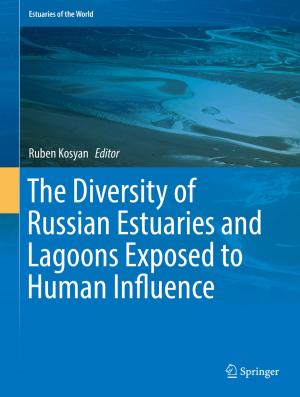Migration and Transnationalism Between Switzerland and Bulgaria
Nonfiction, Social & Cultural Studies, Social Science, Cultural Studies, Emigration & Immigration, Sociology| Author: | ISBN: | 9783319319469 | |
| Publisher: | Springer International Publishing | Publication: | September 1, 2016 |
| Imprint: | Springer | Language: | English |
| Author: | |
| ISBN: | 9783319319469 |
| Publisher: | Springer International Publishing |
| Publication: | September 1, 2016 |
| Imprint: | Springer |
| Language: | English |
This book explores trends in migration from Bulgaria to Switzerland since Bulgaria joined the European Union (EU) in 2007. Due to several unique factors, this in-depth case study provides a basis for understanding transnational migration in a wider European context. Bulgarians represent a fairly small community within Switzerland, and are quite scattered throughout the country. They come from various regions in Bulgaria with very different socio-economic profile. In Switzerland, apart from differences in linguistic regions and the federal system, there are significant regional disparities, providing a variety of contexts for exploring this transnational migration, causes and consequences.
The first part of the book analyses who migrates and why, addressing regional disparities within Bulgaria. The text explores the impact of economic differences, educational background, and other factors that play into immigrants’ motivations to move. The next part of the book examines different migratory movements and transnational practices between Switzerland, Bulgaria, and other destination countries for Bulgarian immigrants. It addresses larger socioeconomic shifts and resulting impacts at individual, household, community, and national levels. Finally, the book assesses all of these factors within the context of shifting immigration policies. This work draws on mixed-method empirical research conducted in both countries over a three-year period, analysed within four major frameworks: transnationalism and migrant networks, social inequality, regional disparities and development, and immigration policies.
The results will be of interest for researchers working in a variety of social science fields, including anthropology, geography, sociology, social psychology, law, public policy, political science, international studies, demography and exploring issues related to migration and development, social and regional disparities, inequality, employment, social networks, social identity and others.
This book explores trends in migration from Bulgaria to Switzerland since Bulgaria joined the European Union (EU) in 2007. Due to several unique factors, this in-depth case study provides a basis for understanding transnational migration in a wider European context. Bulgarians represent a fairly small community within Switzerland, and are quite scattered throughout the country. They come from various regions in Bulgaria with very different socio-economic profile. In Switzerland, apart from differences in linguistic regions and the federal system, there are significant regional disparities, providing a variety of contexts for exploring this transnational migration, causes and consequences.
The first part of the book analyses who migrates and why, addressing regional disparities within Bulgaria. The text explores the impact of economic differences, educational background, and other factors that play into immigrants’ motivations to move. The next part of the book examines different migratory movements and transnational practices between Switzerland, Bulgaria, and other destination countries for Bulgarian immigrants. It addresses larger socioeconomic shifts and resulting impacts at individual, household, community, and national levels. Finally, the book assesses all of these factors within the context of shifting immigration policies. This work draws on mixed-method empirical research conducted in both countries over a three-year period, analysed within four major frameworks: transnationalism and migrant networks, social inequality, regional disparities and development, and immigration policies.
The results will be of interest for researchers working in a variety of social science fields, including anthropology, geography, sociology, social psychology, law, public policy, political science, international studies, demography and exploring issues related to migration and development, social and regional disparities, inequality, employment, social networks, social identity and others.















